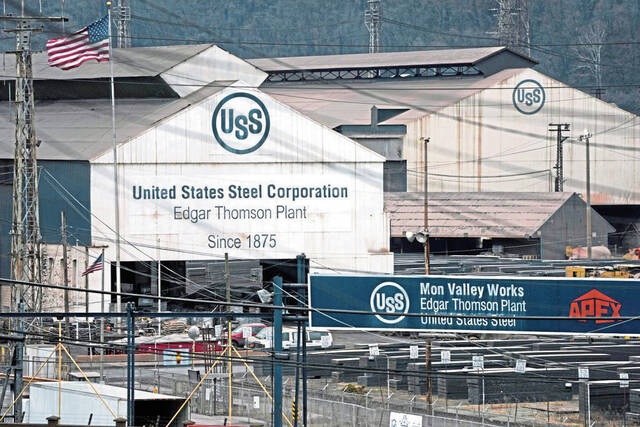It is no accident that the U.S. is a world leader in innovation. A major reason we hold this advantage over other nations and the European Union is due to many countries following the European model, which leans so heavily into regulation. But when it comes to the proposed merger between U.S. Steel and Nippon Steel, the Biden administration makes EU regulators look like libertarians.
European regulators consider it their job to fight corporate mergers. At times this has resulted in lower prices for consumers, which almost always accompanies less corporate investment and the production of lower quality goods and services.
Generally, U.S. antitrust regulators act in response to evidence of consumer harm, while EU regulators are willing to block mergers to prevent purely speculative harm — regardless of whether harm ever materializes.
America’s distaste for heavy-handed antitrust regulations helps explain why the U.S. leads the way in fields like A.I. and has experienced GDP growth during periods when Europe has lagged in both technological progress and economic growth.
It is quite eye opening, then, to learn the EU recently approved Nippon Steel’s acquisition of U.S. Steel while Washington bureaucrats are burying the deal in a mountain of red tape. It’s a sad situation when the EU’s famously difficult regulators swiftly recognize the enormous benefits of the proposed steel merger while the U.S. bottles up billions of dollars in critical investment to boost innovation in domestic steel production in a regulatory neverland.
Electoral and special interest politics are apparently at work in causing this role reversal. U.S. Steel and its employees’ union, the United Steelworkers, are both based in Pennsylvania, a must-win state for the Biden campaign. Since the union has aligned with its corporate partner Cleveland-Cliffs in opposition to the deal, President Biden has broken with precedent to place his finger on the scale against the acquisition.
Nippon Steel is headquartered in Japan, perhaps the U.S.’s closest ally. That makes the deal subject to review by the Committee on Foreign Investment in the U.S., or CFIUS, which is led by Treasury Secretary Janet Yellen. CFIUS is supposed to review transactions involving foreign entities with a narrow focus on national security, not political influences. It’s partly why CFIUS reviews deals in secrecy.
An acquisition by a Japanese company would typically be an easy approval for CFIUS considering our countries’ close economic and military ties. But President Biden has politicized the process by issuing White House statements declaring that U.S. Steel should remain American owned, even if it comes at the expense of enhanced job security for American workers and an influx of investment and know-how for American steelmaking.
Allies of the union, including Sen. Sherrod Brown, have claimed that Nippon’s small corporate footprint in China presents serious national security concerns. Sen. Brown’s claims were based on a report issued by Horizon Advisory, a private consultancy.
However, Horizon Advisory quietly recanted numerous claims about Nippon’s presence in China that were false. Politico identified at least six major corrections to the report, all of which dealt with assertions that Nippon was more closely tied to Beijing than is true. The corrections speak to the obvious lack of security concerns with the deal.
President Biden apparently sees the CFIUS intervention as being in his political interest. Without it, the reasoning goes, the union might abandon him and leave him more electorally vulnerable in Pennsylvania than he already is.
Regardless of his political assessment, it’s disturbing precedent for a sitting president to violate the spirit of the law by intervening in a deal between two companies seeking to unite and compete against Chinese domination of the global steel market. The prioritization of union-boss politics over the nation’s security is both short-sighted and politically cynical.
The administration’s dismissal of a leading Japanese company is not the most recent snub of our Asian ally. Recently, the president rubbed salt in the wound when he claimed the Japanese are “xenophobic.” Japan had a restrained response, noting that Biden’s comment was unfortunate and inaccurate.
The Biden administration should stop slighting our most important ally in our competition with China. A good place to start would be to allow CFIUS to do its job as congressionally authorized and let the EU reclaim the lead in regulatory self-defeat.
Gerard Scimeca is co-founder and chairman of Consumer Action for a Strong Economy (CASE), a free-market consumer advocacy organization.








